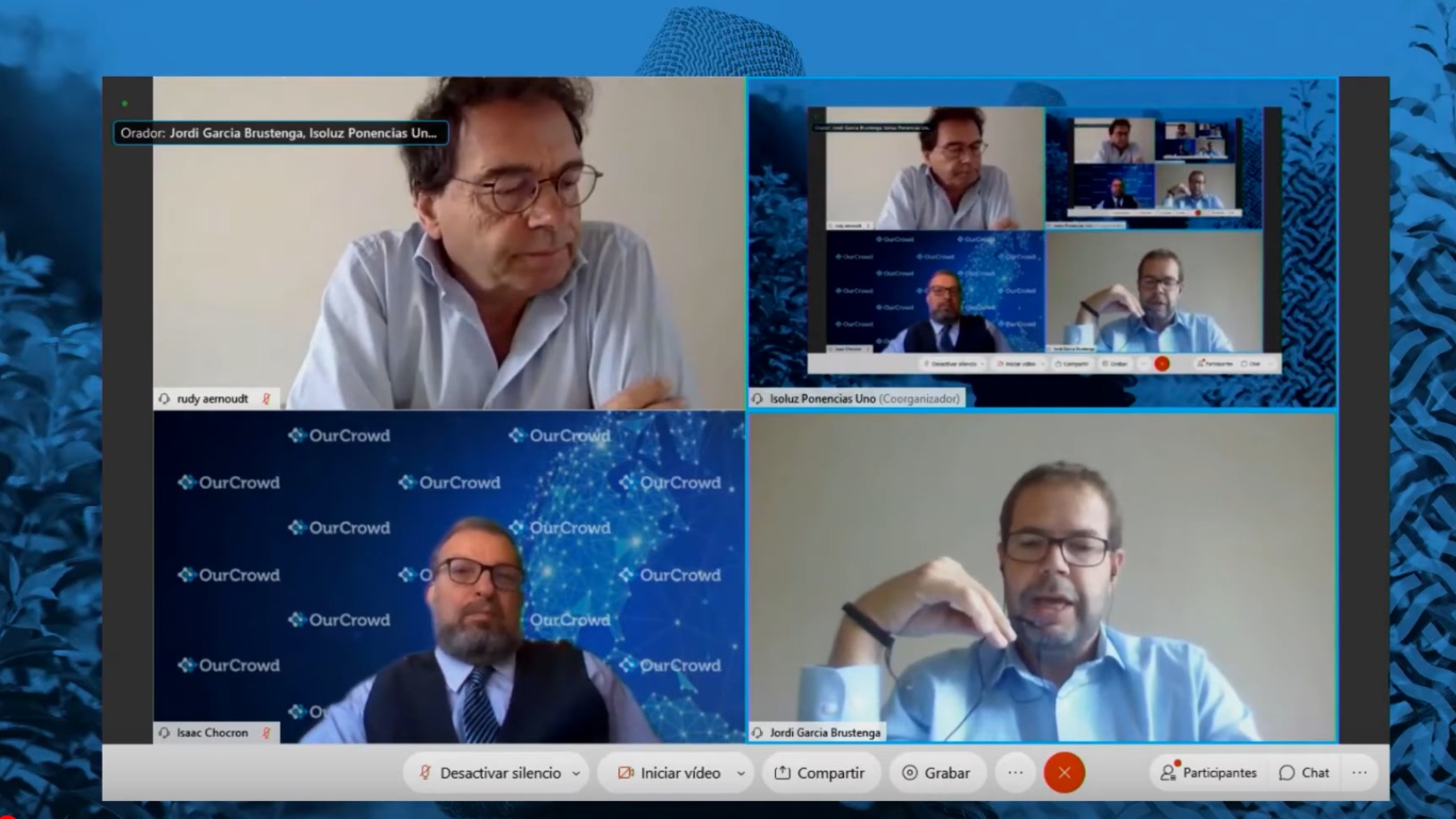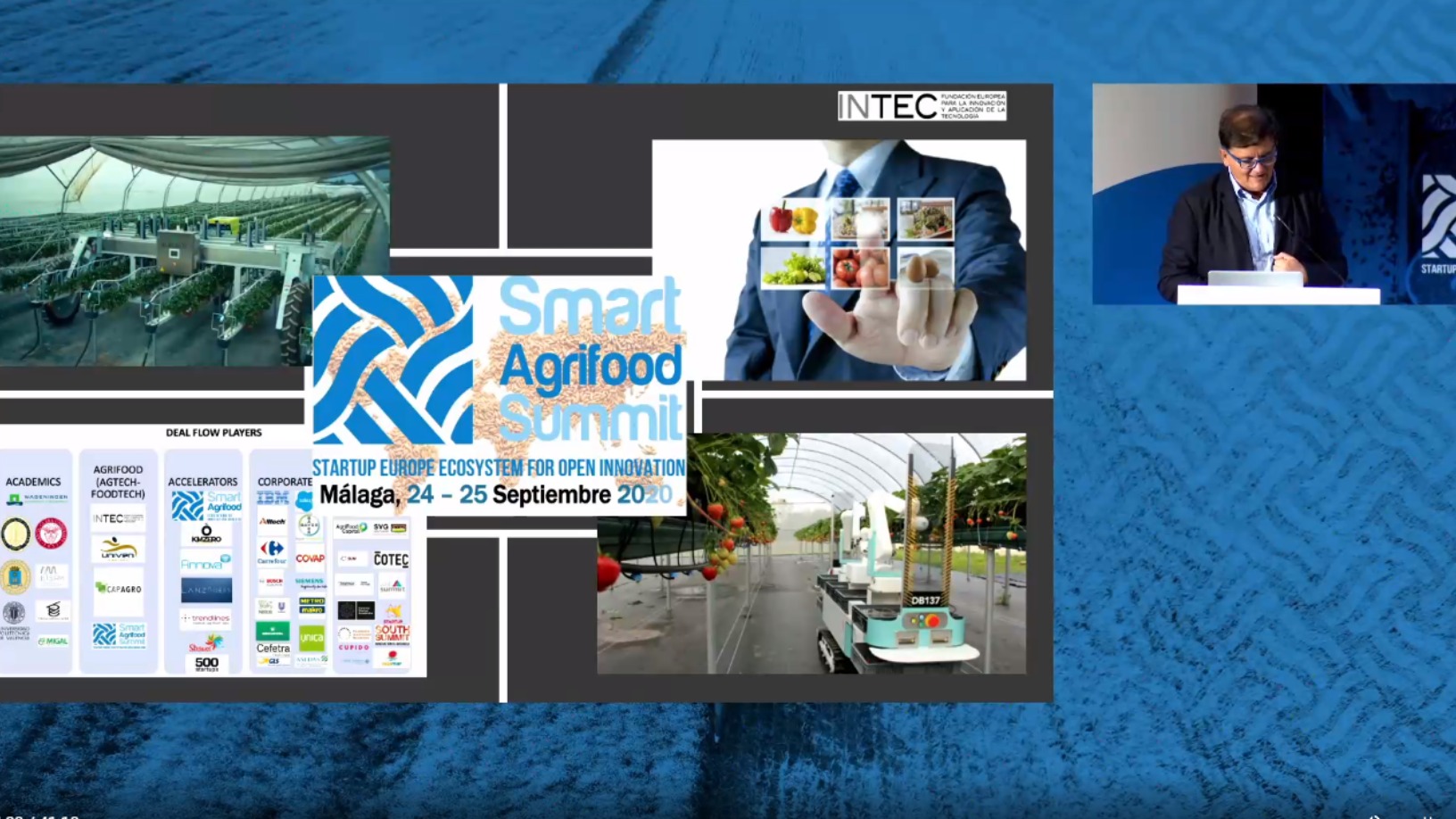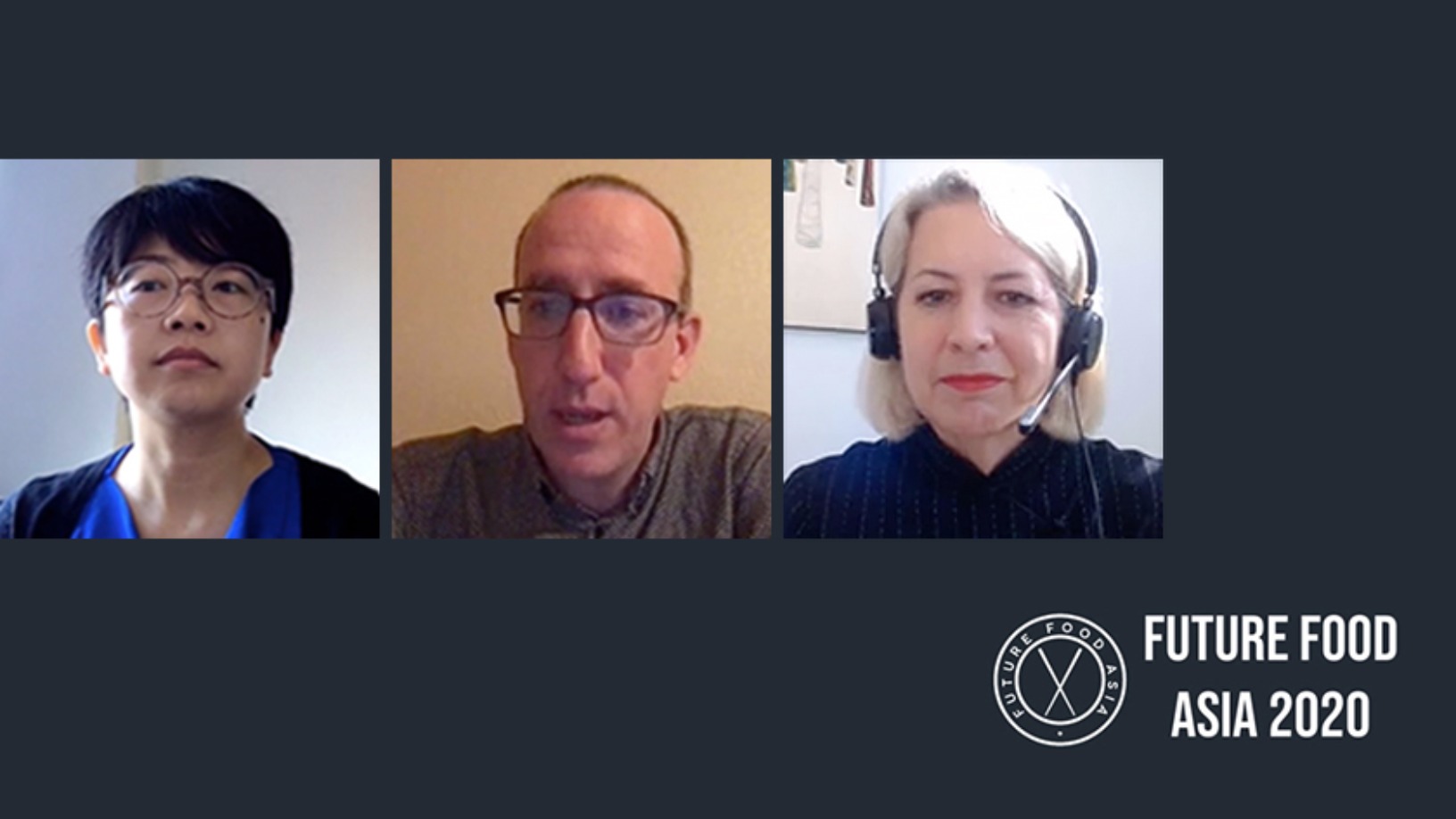Last week’s series of conferences held at the Smart Agrifood Summit in Malaga, Spain rounded up with a sharing session by a panel of public- and private-sector investors.
Moderated by Jesus Alonso, serial entrepreneur, angel investor and Partner at Cupido Capital, a seed-stage VC, the panel comprised Jordi Garcia, COO of Enisa, the Spanish state investment agency; Rudy Aernoudt, Senior Economist, DG Grow, of the European Commission; Isaac Chocron, Director of Business Development, Iberia, of OurCrowd, Israel’s most active VC; and Cristina Romero, CEO of the Andalusian VC UNIVEN Capital.
Below are excerpts of the panel discussion, edited for length and clarity.
Jordi Garcia, COO, Enisa
Ensia has been supporting the Spanish entrepreneurial ecosystem the past 20 years through participatory loans – a mix of debt and equity financing with the most attractive qualities of each. We do not ask for long-term guarantees and the variable interest rates are based on profitability. On the other hand, we do get shares but without dilution, so we offer a very interesting instrument for most startups.
This was especially important 20 years ago when venture capital was very limited. At Enisa, together with other regional and national public bodies, we have been the lever lifting the venture capital market in Spain. Now we can say that the private sector has grown much stronger, and our role is going to be a more selective one, in a certain way.
We give out about 500 loans a year, investing millions, and with that, we have already invested about €1bn in the past 20 years. I believe that in this moment of Covid, this is more important than ever. The ideal would be that we can strengthen our efforts both in quantity and quality. We’ve been asked to renegotiate 70 loans because the companies in question are shutting down, or are selling significantly less due to the pandemic. But it’s also true that there are over 700 new applications more than the usual number, which means that the market is very active and some sectors are transforming much faster than before.
The average ticket size for agritech startups is about 30–40% bigger than average
In the rural and agrifood sectors, we are extending 25–30 loans a year amounting to about €3m-4m. Specifically, I believe three points are worth highlighting. First, the average ticket size is about 30–40% bigger than our average deal. Secondly, the geographical distribution is broader compared with the internet technology companies that are usually concentrated in Barcelona and Madrid.
Thirdly, it’s a sector that is closely linked to the strategy we have now in place at Enisa. Our investment focus and areas of opportunity have a double objective: to make new markets profitable and, on the other hand, to fulfill the needs of our society. Therefore we focus on the revival of rural areas, as well as a healthier, more sustainable and safer diet and food supply.
Rudy Aernoudt, Senior Economist, DG Grow, European Commission
In the European Commission we now think in terms of ecosystems. We are now facing a big period, 2021–2027, and one of the main ecosystems is agrifood. It’s a big sector with 15m people and a lot of startups. If you look at it from the EU’s point of view, if we want an economic recovery, of course, we’d need a lot of public money but we also need to trigger private money and go back to the hybrid public-private partnership model. Today, the EU’s two priorities are digitalization and the Green Deal, and agrifood is at the crossroads of both.
So I think there is an immense opportunity in agritech to commit to create startups. And startups are very important because it’s through them that we can stage a recovery. But there’s a second element in Europe today: we’ve been focusing on startups the last 15, 20 years, but we’ve neglected the scale-ups. When you start, and you’re looking for funding of €100,000 or €500,000, you can easily find it. But once you get big and you start looking for €10m to €15m, that’s very hard to find in Europe. Why? Our funds are relatively small, so it’s hard to put one ticket of €15m in one company. And we see, 45% of the good startups that expand leave Europe, so we lose 45% of the scale-ups.
Therefore now our focus should be to set up huge funds. We want to finance and co-finance huge funds, with what we call the SCALE UP program, where we have a fund that has, say, €50m, where you put public money on top of that “quasi money” of €50m, so that you want to double the capacity of investment funds, enabling them to finance companies that are looking for €15m–€25m.
Startups are very important because it’s through them that we can stage a recovery
We want to simplify the funds and on top of that, we have the SCALE UP program, which we hope some funds in Spain will contribute to and in particular, in the agrifood sector.
Isaac Chocron, Business Development Director Iberia, OurCrowd
In Israel we already have a mature innovation ecosystem since more than 20 years; whereas in Spain it’s still growing, especially in the last five to six years, and could grow even more rapidly. The advantage we have in Israel is our innovation system that centers around talent and entrepreneurs, both in the pillars of education and of business. That’s to say, talents can dedicate themselves fully to developing their knowledge and their technological know-how, which is very innovative and disruptive, and they have an ecosystem that supports them.
For example, if a project is presented to an investor and the investor thinks it’s too risky, we have incubators that back such entrepreneurs with $800,000 each for a period of two years as non-repayable grants if the project fails, and only if the startup succeeds then it has to pay back 3% of the ticket received.
This is one of the points that I try to convey to the Spanish regional governments, that their role should be to support the projects that have the potential to succeed, to support them when investors are still doubtful about putting money in them. These projects have to supported until they reach a level where they can be attractive to investors and to the whole investment ecosystem.
In Israel, for those companies that don’t need incubation, they succeed in getting hold of investment at every level, whether it’s seed, Series A, B or C, or those that wish to sell their companies, we have an ecosystem of innovation and entrepreneurship that supports them in every process. Israel has an innovation authority, and allocates 4.2% of its GDP to supporting innovation and entrepreneurship.
In Spain as in Israel, there is a lot of talent, but we have to help them to understand, what a company with high growth potential is. The talent exists, what we have to create is an investment ecosystem. We are currently in deals of between half a million and one million euros, but what about investments of two, three, four million euros? We need to attract international investors; they come in whenever there are disruptive technologies. But Spanish early-stage investors must have the same criteria as international investors; their investment criteria have to be similar so that when a company achieves investment levels in the like of Series A, B, or greater than €1m, it fits into the same investment criteria of international investors.
Spanish early-stage investors must have the same criteria as international investors
There is also a lack of support from the corporate side. Corporate venture capital has just started to grow here in Spain, but it has to be reinforced and expanded. Also on the exit part – what if I want to sell my company, where do I go? What channels do I have? There’s no access to Microsoft or Google in Spain, for example. This is what needs to be created and improved.
It is true that talents are highly demanded but it is even most important to find cheap talent. When the valuation of a company is lower, it is attractive for investors, as is the case in Silicon Valley and Israel, because the success does not depend on the value of the company but from the exit. Therefore, it’s about greater efficiency of the investment and profitability.
Cristina Romero, CEO UNIVEN Capital
We are a slightly different VC firm because we are made up of more than 90 investors, most of whom are professors of the different Andalusian universities that, in addition to capital, contribute with their knowledge supporting university spinoffs that have high innovative content with a high technological component and international outlooks.
To date our exit strategy has worked very well. We have been able to support our investments and therefore access new investments without making new calls because we’ve had exits through IPOs wherein we have sold our shares. In fact, in recent years we made the listing and subsequent capital increase of what is now AIrtificial, a company that has also participated in one of the Hyperloop projects. Along with that we also have ADL Bionatur, a biotech working on animal health. We are currently also investing in companies in the mobility sector such as Moving, and we are looking into the agrifood sector that we already know will give us new profitability.
UNIVEN Capital is made up of more than 90 investors, most of whom are university professors
We believe that the future of investments is going in this direction because there are things that will be key in the coming years, such as the reduction of our carbon footprint, the elimination of waste and garbage and its transformation into clean energy, the use of water in agriculture.
There are many data points supporting this: for example, 70% of the water consumed is used in agriculture, is, therefore, necessary to build startups focused on improving irrigation efficiency. Forty percent of the food produced ends up in the garbage. Last but not least the use of plastics, we all know it must be reduced as today's numbers are unbearable. Another important sector is the one that innovates in food, such as companies working on alternative proteins or companies that are working on insect proteins.












